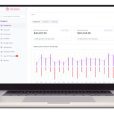Five years since Vodafone CEO, Inaki Berroeta, and billionaire founder of TPG, David Teoh, first met and two years after formally commencing the process, the merger between the two companies is set to be complete by 13 July 2020.
The merger experienced it’s fair share of setbacks in Australia despite receiving strong support from TPG shareholders, with over 99% voting in favor of the deal. Last week, the New South Wales Supreme Court gave the final tick of approval for the merge of the two companies. It comes after an unsuccessful attempt earlier this year by the Australian Competition and Consumer Commission (ACCC) in the Federal Court to stop the deal going forward for fears the merger would make mobile data prices higher for consumers than they would otherwise be.
The new TPG Telecom Limited (ASX: TPG) has been trading on the ASX since June 30 (previously ASX: TPM) on a deferred settlement basis, with trading on normal settlement basis to then commence on July 14.
As part of the Vodafone merger, TPG will also de-merge from Singaporean telco, Tuas Limited (ASX: TUA) who themselves were admitted to commence trading on the ASX on 30 June. Their first day of trading have seen significant buying having opened on Tuesday at $0.50 per share before closing on Friday at $0.95. The Tuas Group will comprise of Tuas, TPG Singapore and Tuas Solutions.
In a Australia’s highly competitive telecommunications sector, the merger makes logical sense. Vodafone are mostly known for their mobile services, and TPG their internet packages offered by internet service providers iiNet, Internode and AAPT. Under the new merged entity, Berroeta will serve as CEO with Teoh appointed Chairman.
Unlike big telcos Telstra (ASX: TLS) and Optus who use 5G networks, Vodafone and TPG both use the 4G network in Australia which can be less reliable but the new TPG has plans to roll-out a 5G network, adding considerable debt to their balance sheet.
Amaysim (ASX: AYS) is another telco making headlines over the past month. The company has seen their share price surge over 64% from $0.32 at the 1st of June to $0.53 just three days later. The sharp rise followed the announcement that the company would acquire 77,000 mobile subscribers from OVO Mobile for $15.8m and media speculation that the company was looking to sell the energy component of the business. Over 96% of the 77,000 subscribers will provide the company with recurring revenue, putting the telco on track to see a change in their reporting in upcoming financial years.
The entire telecommunication sector has seen an immense shift in recent years to an industry with strong consumer-power. Mobile data, home internet plans, and talk times have all become cheaper to consumers than it was five or ten years ago, when unlimited talk and text were simply phantoms and 1GB of mobile data set you back $30.
The shift towards a consumer-centric sector is also evident with the emergence of no-lock-in contracts and 24-month contracts losing the prominence they once held. It has been reported that such ‘data price deflation’ is caused by competition amongst companies fighting for market share, something we will likely see continue for the foreseeable future.
The $15 billion TPG-Vodafone merger was coordinated by Deutsche Bank and Bank of America Meryl Lynch.
- This small biotech is the definition of a quiet achiever, here’s why it might be time to tune in - November 25, 2021
- New CEO flags 100-day plan for Crowd Media’s conversational AI platform - October 19, 2021
- Healthia emerges as largest physiotherapy provider with $88m acquisition, more growth still to come - September 22, 2021













Leave a Comment
You must be logged in to post a comment.